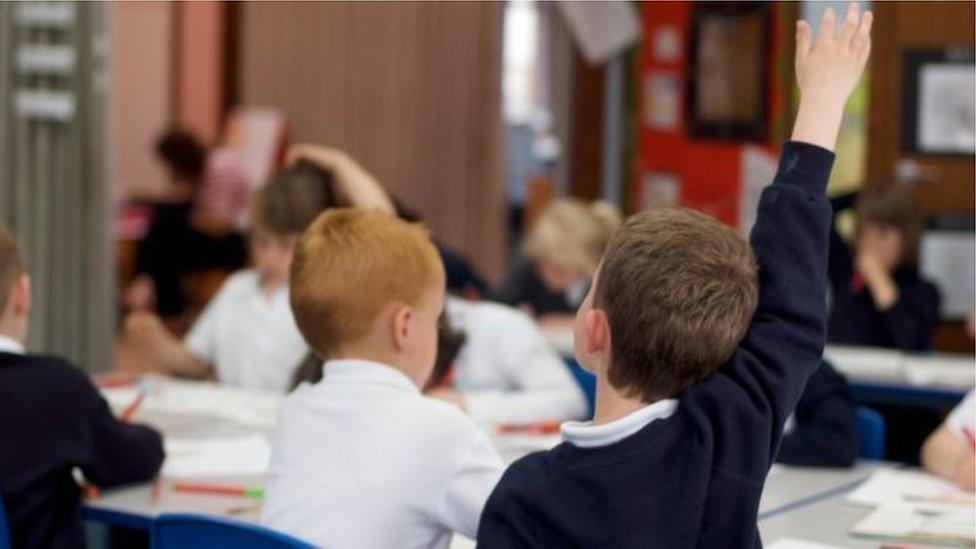Autism: Almost one in 20 NI schoolchildren have diagnosis
- Published

An estimated 4.5% of Northern Ireland's school-aged population has a diagnosis of autism, Department of Health figures show
Almost one in every 20 school-age children in Northern Ireland has been diagnosed with autism.
More than 13,000 children between the ages of four to 15 have a diagnosis of autism - an estimated 4.5% of the school aged population.
That is according to new figures published by the Department of Health (DoH).
The proportion of children with autism in schools in Northern Ireland has more than trebled in a decade.
In 2020/21, 4.5% of children aged four to 16 had been identified with autism or Asperger's syndrome, up from 1.2% in 2009.
While the DoH cautioned against direct comparison between years due to changes in the ways autism data is collected, they said an increasing number of children with all ages were being diagnosed with autism.
Boys were three times more likely to have a diagnosis of autism than girls.
The number of children of school-age with autism has been increasing by about 10% a year for the past decade.
Educational support
While most pupils with autism have Special Educational Needs (SEN), about 14% did not have any SEN.
Some parents have previously told BBC News NI of their struggle to get appropriate support for their children's education.
According to the Department of Health's definition, autism is a lifelong disability which affects how a person communicates with and relates to other people and how they make sense of the world.
It is known a "spectrum condition" as it affects people in different ways and to varying degrees.
Asperger's syndrome is similar to autism, but children diagnosed with it can have some different language and learning disabilities.
Increased awareness and the effect of the Autism Act NI, which was passed in 2011, have been highlighted as potential reasons for the rise in diagnoses.
"The need to develop and improve health and social care services for people of all ages who are affected by autism (including Asperger's syndrome) has been apparent for some time," the DoH report said.
It also said that autism assessments had been reduced or suspended during the early part of the coronavirus pandemic so the prevalence rate might actually be higher than the figures suggest.
Children with autism are educated in both mainstream and special schools.
Autism levels among children are higher in the most deprived areas of Northern Ireland, with the highest rates in the Belfast Trust area.
The rate of autism in school-aged children in the 10% most deprived areas was 37% higher than the Northern Ireland average.
Related topics
- Published9 May 2021

- Published27 April 2021

- Published21 February 2019
